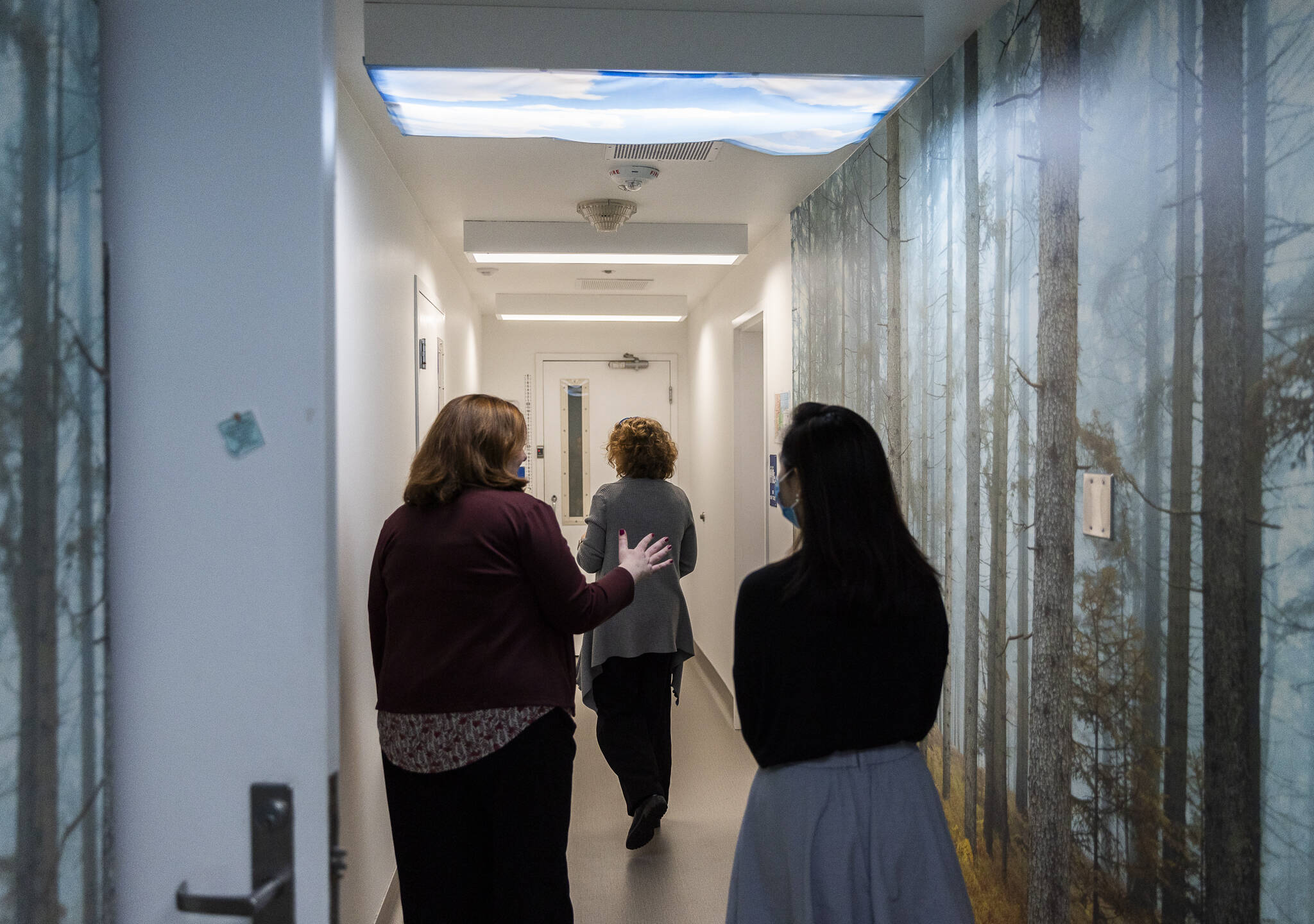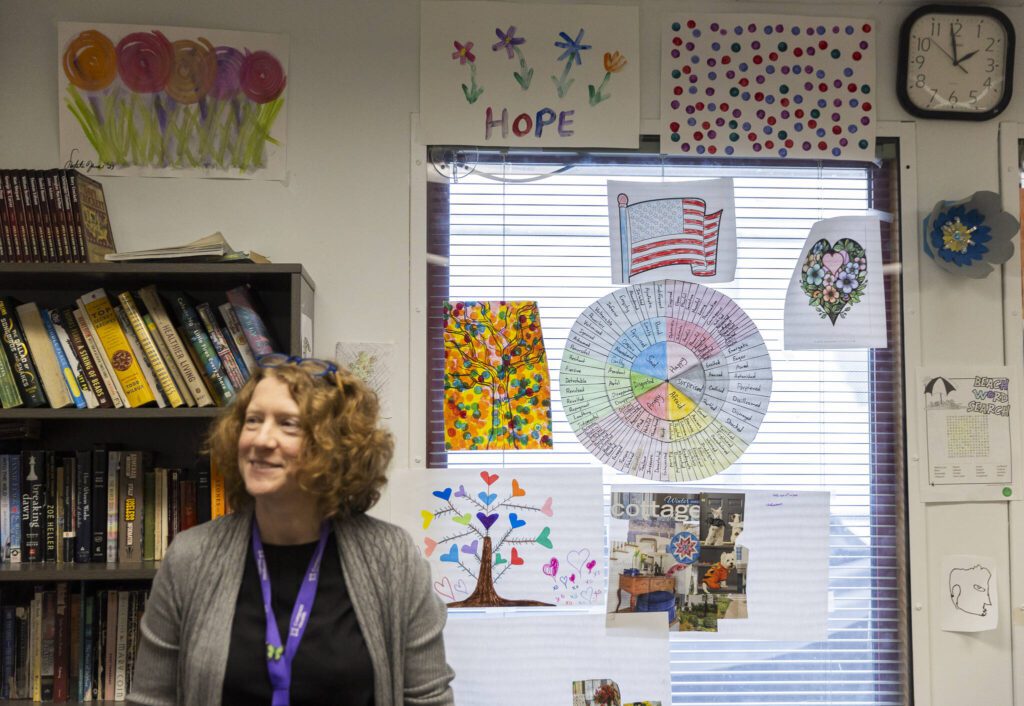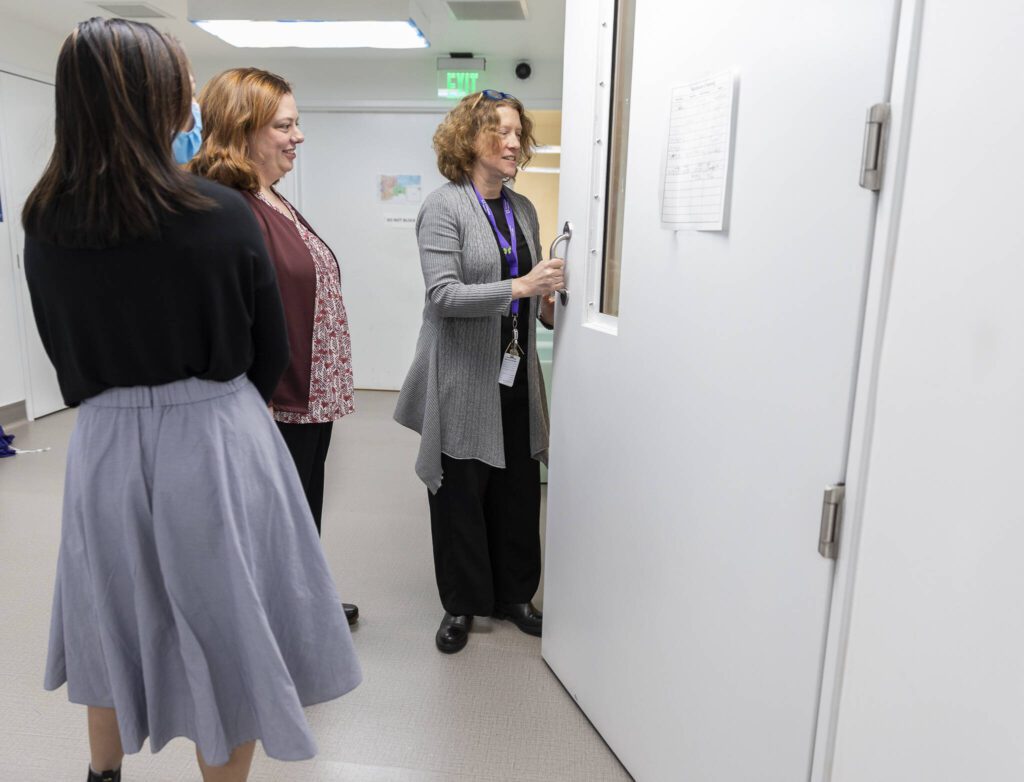MUKILTEO — A new partnership between a medical school and a nonprofit is allowing medical students to get on-the-job experience at a local behavioral health center.
It’s an important partnership, staff at the Mukilteo Evaluation and Treatment Facility say, because of a dire need for mental health facilities and the psychiatrists needed to staff them.
About 55 employees work at the facility, one of only a few inpatient psychiatric facilities in Snohomish County, operated by regional nonprofit Compass Health. It provides 24/7 care to people — sent to the facility involuntarily via court orders — going through intense mental health struggles.
But the new partnership between Washington State University and Compass Health is looking to curb those staffing challenges by giving medical students experience in the field of psychiatry on a community level. The university’s medical school, only a decade old, began the partnership with the nonprofit last year. Since then, about 14 students have gone through their mandatory clinical rotations at the facility.
“It’s not instant because med school is a long process,” said the dean of the Everett campus of the medical school, Alison Haddock. “But we’re trying to create a pipeline where we’re bringing psychiatrists back.”
Clinical rotations, required by medical schools, place students at hospitals and clinics to provide on-the-job learning experience in a number of medical fields, from internal medicine to surgery and psychiatry. The goal of Washington State University’s partnership with Compass Health, Haddock said, is to give students on-the-ground experience on a smaller-scale level.
“Historically, our medical education system has been based in big, inpatient hospitals,” Haddock said. “Part of the reason why our curriculum isn’t like that, even though it’s atypical, is to reflect what the needs of the community are.”
There is a shortage of mental health providers in parts of every county in Washington, federal data shows. Inpatient psychiatric facilities like the Mukilteo location are so few and far between that many people undergoing mental health crises are treated in emergency rooms instead, Haddock said.
That lack of resources not only hurts those with mental health difficulties, but those looking to enter the field of psychiatry as well. A lack of providers means a lack of facilities for students to learn in, which leads to a lack of sorely needed psychiatrists, feeding a “vicious cycle,” Haddock said.
“It hasn’t always been possible for us to get as much time with psychiatrists as we’d like our medical students to have,” she said. “We make sure we give them the experience so that they have the curriculum they need to be effective physicians, but the real and the ideal, there can sometimes be a little bit of a gap.”
Dr. Katie Gilligan, the chief medical officer at Compass Health who oversees the treatment center in Mukilteo, has seen the same problem for years. One student she coached years ago decided to go into internal medicine because the student didn’t have enough experience in the psychiatric field, Gilligan said.
The rotation offerings at the facility are looking to change that. One student, Amanda Gian, a fourth-year medical student at Washington State University’s medical school currently taking part in a rotation at the Mukilteo facility, said the program has given her valuable psychiatric experience.
“Here I get to learn the tools to try and figure it out,” Gian said. “In psych, what’s really cool is that there’s so much art to the practice of medicine, and I really get to see it.”
Working at the smaller facility, as opposed to a larger hospital, brings other intangible benefits as well, Gilligan said.
“You can see success stories, which is what sustains us doing this work,” she said. “It is very hard work, and when you see people doing well, it really motivates you to keep going.”
Compass Health’s $71.5 million construction of a new behavioral health center, known as the Marc Healing Center, is set to open in July. It will include a 16-bed evaluation and treatment unit, like the Mukilteo facility, along with other services. The nonprofit previously operated a triage program on that site for decades before it closed the program in 2023 to make room for the new building, leaving a gap in service.
The new behavioral health center is known as “phase two” of an ongoing three-phase project along Broadway in Everett which includes Andy’s Place, a permanent supportive housing building that opened in 2021.
Will Geschke: 425-339-3443; william.geschke@heraldnet.com; X: @willgeschke.
Talk to us
> Give us your news tips.
> Send us a letter to the editor.
> More Herald contact information.






























